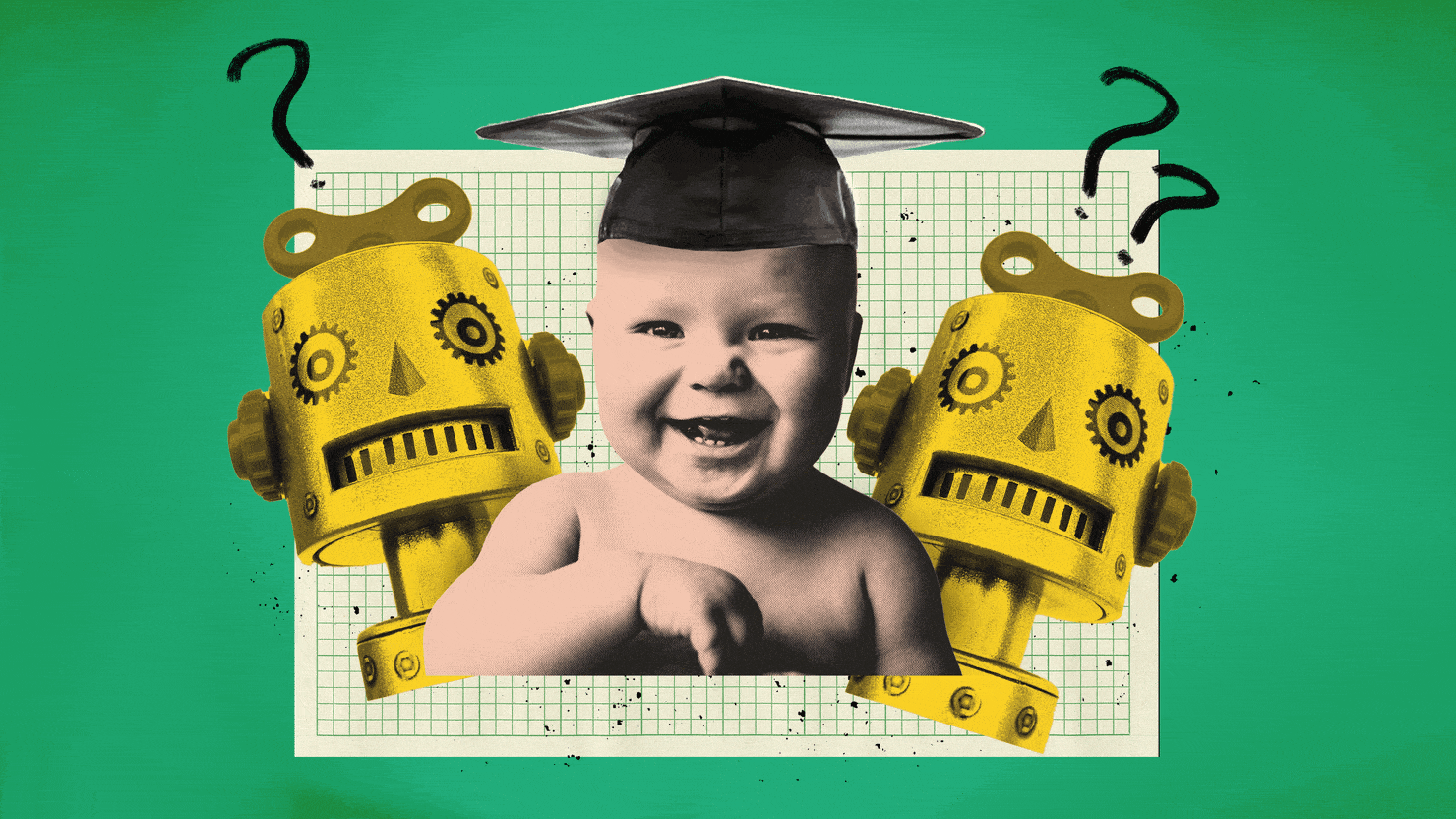There’s been a lot of news about artificial intelligence lately. Ever since OpenAI released ChatGPT to the world—followed by Microsoft baking it into Bing—people are growing ever more concerned that AI is evil, sentient, and ready to take over the world.
Luckily, that’s not necessarily the case. In fact, there are still a ton of different things that AI tools like ChatGPT and the new Bing frankly suck at compared to humans—and some of them are incredibly basic. Case in point: A new study published Feb. 21 in the journal Cognition found that babies outperform AI when it comes to “commonsense psychology” and sussing out motivations and goals behind other people’s actions.
That’s good news for those that should help assuage concerns we’re hurtling toward an AI takeover of the world—if AI can’t best a bunch of stinking toddlers at some key benchmarks of intelligence, they won’t be a match for suddenly replacing humans.
“Adults and even infants can easily make reliable inferences about what drives other people’s actions,” Moira Dillon, an assistant psychology professor at New York University and the senior author of the paper, said in a press release. “Current AI finds these inferences challenging to make.”
We’ve known for a while now that babies are pretty good at observing and understanding people’s actions. They’re capable of fairly high-level intuitive thinking, rationally attributing goals to and predicting the actions of others. Meanwhile, AI can kind of do the same, like when you see an ad for a product on Instagram that you were just searching for on Google.
When compared to one another though, babies definitely punch above their weight class. The researchers tested a group of 84 11-month-old infants against “state-of-the-art learning-driven neural network models” using the Baby Intuitions Benchmark, a group of six tasks that tests for commonsense psychology. The infants watched a series of videos on Zoom that showed animated shapes simulating human behavior by moving around and doing things like retrieving objects on screen. Meanwhile, the authors tested an AI that was trained to recognize patterns and predict actions in the videos.
When the shapes did something unexpected like moved differently or didn’t retrieve an object like it usually did, the infants would react by staring longer at the shapes on a screen. The study’s authors note that this is an indicator that the infants recognized the motivations behind simple actions of the animated shapes—and were surprised when it didn’t perform the expected action. However, the AI didn’t exhibit any evidence that it understood the motivations behind the actions.
This ability to contextualize information and actions seems to be something uniquely human—or at least, unique to creatures with brains capable of higher level understanding. It allows us to connect and collaborate with other humans. It’s also something that robots can’t do—at least not yet.
“The novel idea of putting infants and AI head-to-head on the same tasks is allowing researchers to better describe infants’ intuitive knowledge about other people and suggest ways of integrating that knowledge into AI,” Dillon explained.
Disconcertingly, though, the study’s authors do allow that better defining and characterizing this intuition might one day help developers create sophisticated AI capable of doing the same.
Still, while people like the world’s second richest man might be sounding the alarm on the dangers of AI leading us down the path to humanity’s destruction, take heart in the fact that the computer in your head is much more powerful than the one in your phone or laptop.

